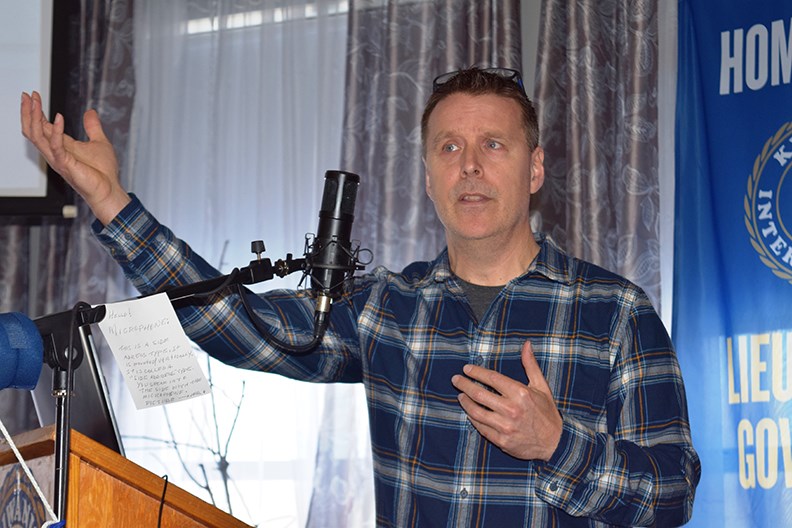Cathy Dobson
Helping our kids disconnect from the digital world and have more authentic experiences may be the key to unlocking mental health problems plaguing this generation.
So says Pat Morrison, the Christian development minister at Grace United Church.
Morrison has worked with children and youth at the church for 26 years and is one of three Canadians chosen to participate in an international project trying to determine the cause of increasing anxiety among young people.
Anxiety has always dogged adolescents but it could usually be connected to something specific. That’s no longer the case, said Morrison who was guest speaker at the Golden K Kiwanis Club on Tuesday.
“Increasingly there is no answer to their anxiety,” he said. But teens he’s talked to post-Covid are saying they are depressed, experiencing malaise, suicidal tendencies, and even homicidal thoughts.
“I’ve developed a deep concern for where our young people are at,” Morrison told about 50 Golden K members. Young people are in a particularly difficult place, especially after the pandemic caused so much isolation and many turned increasingly to their digital devices for interaction and to define who they are, he said.
Morrison is one of 24 practitioners across North America selected by the Indiana-based Lilly Endowment to explore ways church leaders can provide leadership in the current cultural climate.
Morrison spent the first year of the project doing research that included the work of Canadian philosopher Charles Taylor, author of “A Secular Age.”
Taylor writes about today’s lack of connectivity and how it contributes to a lack of identity among teens.
“They are increasingly untethered from that which is real,” said Morrison.
At the same time as social media has taken a bigger role in teenage lives, the roles of parents and the church have receded, he said, adding that he believes teenagers are looking for real connections.
A youth group of 12 teens at Grace United have confirmed this for Morrison, he said.
The theory that youth feel “untethered” to reality rings true. “It makes sense to them,” Morrison said.
He is entering the second year of the three-year project and intends to create a working group and “communal conversation” at Grace United to prove the theory, then write a paper with the results and create resources for youth ministries.
“What’s to be done? I don’t have an answer yet,” he said, adding that he believes the solution may lie in helping youth define who they are through real-life experience, rather than virtual experience.
